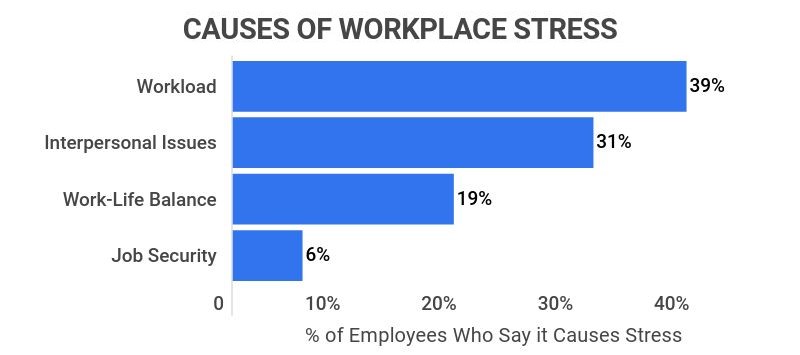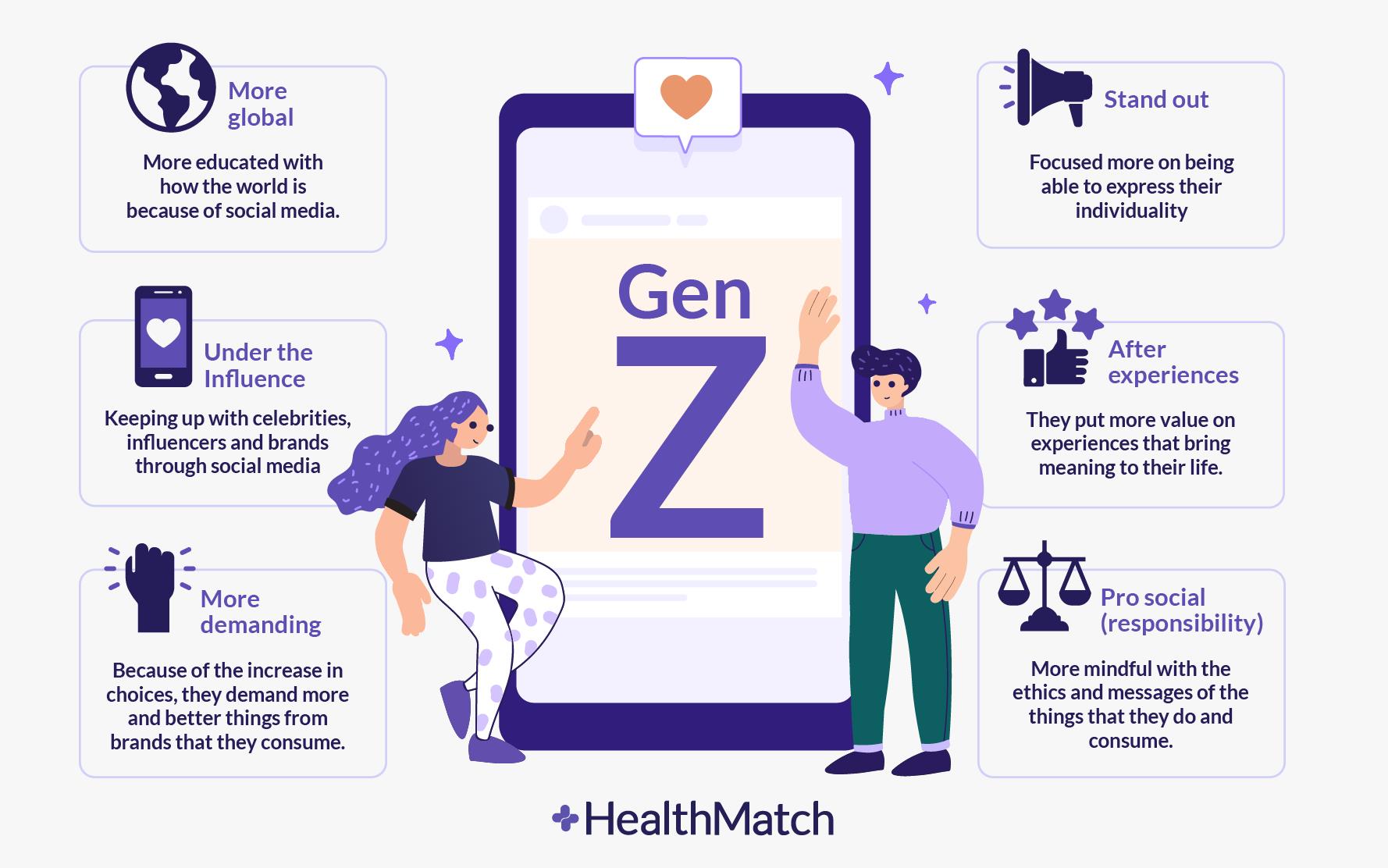
Research reveals that 91% of 18-24-year-olds are stressed and 40% of them are worried about the rising cost of living.
Generation Z, also known as Zoomers, is the demographic group born between the mid-1990s and the mid-2000s. They are the youngest and most diverse generation in the workforce, and they are often described as tech-savvy, creative, and driven. However, there is growing evidence that Gen Z may also be the most stressed generation in the workplace. The insecurity, instability, and relentless upheaval of the past several years has left the younger generation anxious. Adding to that layoffs and pay fails are becoming the major concerns of worry, now more than ever.
In the current climate where Gen Zs have turned to Quiet Quitting, you as employers need to step up to retain and attract talent. Keep reading on to learn how you can do so.
Causes Of Workplace Stress Among Gen Z Employees
The causes of workplace stress are complex and multifaceted, but some of the most common sources of stress include workload, job insecurity, organizational change, interpersonal conflicts, and poor work-life balance. Gen Z workers may be particularly vulnerable to these stressors due to a range of social, economic, and technological factors.

Here are some of the most common causes of workplace stress:
One key factor that may be contributing to Gen Z's workplace stress is their experience of the gig economy. Many young workers in this generation are employed in non-traditional jobs, such as freelance work, temporary contracts, and part-time roles.
While these types of jobs offer flexibility and variety, they can also be highly unstable, with irregular income, uncertain hours, and a lack of job security. This can lead to significant stress and anxiety, as workers struggle to make ends meet and worry about their future prospects.
Another major source of stress for Gen Z workers is their experience with social media and the internet. This generation has grown up in a highly connected world, where constant communication, social comparison, and online harassment are commonplace.
Social media platforms like Instagram, Twitter, and Facebook can be highly addictive and can create unrealistic expectations around work performance and career success. This can lead to feelings of inadequacy and pressure to achieve more, which can in turn increase stress levels.
A third factor that may be contributing to Gen Z's workplace stress is the changing nature of work itself. With advances in technology, automation, and artificial intelligence, many traditional jobs are being replaced or disrupted. This can create uncertainty and anxiety about the future of work and can make it difficult for young workers to plan their careers or develop new skills.
Additionally, Gen Z workers may be expected to navigate complex organizational structures and work in highly collaborative and fast-paced environments, which can be overwhelming and stressful.
What Gen Z Can Bring To The Table?

Despite these challenges, there are also many strengths and opportunities associated with Gen Z workers.
By harnessing these strengths and addressing the sources of workplace stress, organizations can create more supportive and fulfilling work environments for Gen Z and other employees.
What Employers Can Do To Help?
To address workplace stress among Gen Z workers, organizations should consider a range of strategies. These may include:
Many Gen Z workers value flexibility in their work arrangements, such as remote work or flexible hours. By offering these options, employers can help reduce the stress associated with long commutes, family responsibilities, and other personal commitments.
Workplace stress can have a significant impact on mental health, and organizations need to provide access to counseling, therapy, and other support services. This can help workers manage stress and anxiety and improve their overall well-being.
Organizations should work to create a culture of support and inclusivity, where workers feel valued, respected, and supported. This can include promoting diversity and inclusion, providing opportunities for feedback and collaboration, and recognizing and rewarding achievements.
Gen Z workers are often eager to learn and develop new skills, and employers should provide opportunities for growth and development. This can include training programs, mentorship opportunities, and networking events.
Gen Z workers prioritize work-life balance, and organizations should promote policies and practices that support this. Embrace the power of positive recognition and find ways to give it to them. Regardless of the task given to them make it a point to appreciate their hard work and efforts in front of the group. When they feel great about the work they are doing they are more likely to stay.
The Time To Change Is Now
Stress is part and parcel of human life and to be total without stress is to be dead. The goal of the factors mentioned above is to not eliminate stress from the equation together but to mitigate the impact that toxic stress has on the overall productivity of Gen Z employees. If you are handling a team full of young and fresh workers, it is better to pursue a Master of Arts in Education with Learning & Development to start cultivating an engaging and positive culture and make the most of these young professionals.
Written By : Park Jin Ae
Centre For Training & Professional Development (CTPD) - The Trading brand of TTA Training Private Limited, India is a ISO 9001:2015 Company




© 2021 - Centre For Training & Professional Development (CTPD). All Rights Reserved. Centre For Training & Professional Development (CTPD) trading brand of TTA Training Pvt. Ltd (India) - CIN U80902WB2016PTC215839, Asia Teachers Training Co., Ltd (Thailand) - Registration No. 0105558193360 & Asian College Of Teachers Ltd (UK) - Company Number 9939942 & Asian College Of Teachers LLC, (USA) - Federal Tax Identification Number 30-1261596
Designed by kreativewebtech